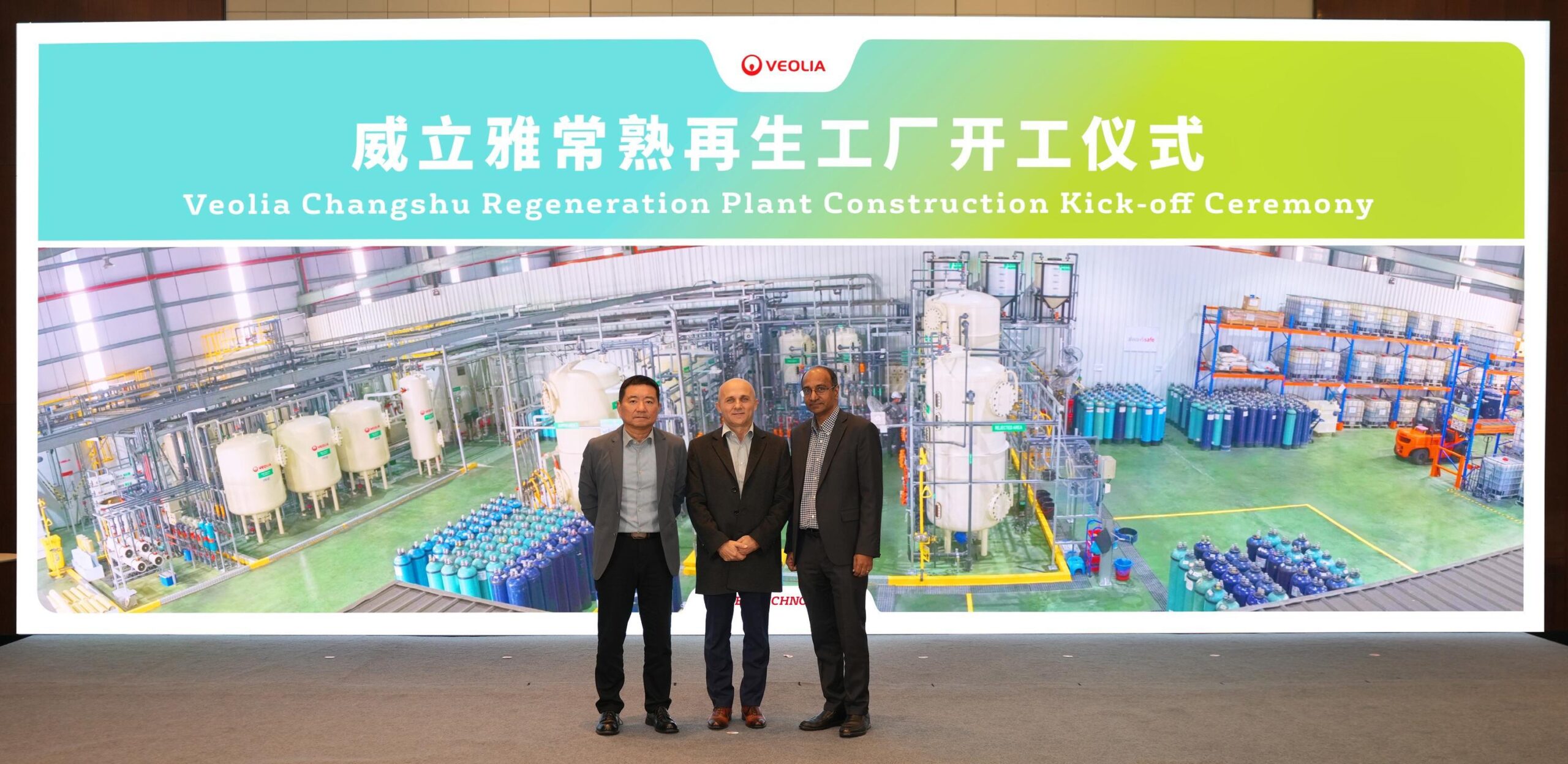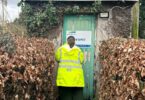Veolia Water Technologies, a subsidiary of Veolia and a leading specialist in water treatment technologies and services, is redeveloping a brownfield site for its first ion exchange regeneration facility in China. The plant will be an integral part of its service deionization and mobile water treatment ecosystems and will improve supply chain resilience, regenerating and recycling the resins used in water treatment processes. This reliable source gives industries with the need for treated and ultrapure water — such as microelectronics, pharmaceutical, petrochemical, power and food and beverage — assurance of supply without compromising on sustainability.
An investment of €10 million for the development of this new ion exchange regeneration service center and expansion of Veolia’s mobile assets in China signifies the company’s commitment to advancing the capabilities of its mobile fleet in Asia Pacific. Strategically located in the densely populated Changshu industrial zone, the plant will function as an operation and maintenance center for all associated assets. The Changshu regeneration facility is expected to be operational by the second quarter of 2024. This new plant is part of China’s 14th Five-Year Plan (2021-2025), which aims to develop a circular economy and resource recycling. It will complement Veolia’s current resin regeneration and recycling service center in Penang, Malaysia, enhancing support to customers within the Asia Pacific region.
The facility will span approximately 6,000 square meters, the size of four football fields. The investment is inline with Veolia’s commitment to sustainable redevelopment and ecological transformation. Built upon a brownfield site, the completed plant will boast a production capacity of 60 kL/d for mobile water services and 5 kL/d for service deionization, and will be Veolia’s first ion exchange regeneration facility in China. Similar plants are available in the Middle East, Latin America, North America and Europe.
From a sustainability perspective, the plant will incorporate ingenious water recycling systems, reducing city water consumption by up to 60%, preserving water for residents. Plans for a photovoltaic power supply and efficient transformers are in progress, and the facility will adopt state-of-the-art technology to efficiently recycle spent ion exchange resins, promoting resource optimization and sustainability. These actions accelerate decarbonization efforts by reducing power consumption and therefore lowering the site’s carbon footprint. In addition to environmental benefits, the plant’s operation will create employment opportunities for the local community, and Veolia will focus on knowledge transfer and the upskilling of the local team as part of the company’s commitment to talent development. The implementation of these initiatives reflects Veolia’s commitment to achieving a multifaceted performance, which includes fostering economic growth and providing valuable resources to the communities in which it operates.
The strategic investment is poised to bring multifaceted benefits to manufacturers and customers in the country. With the capability for swift mobilization and turnaround, Veolia aims to minimize operational disruptions, offering a reliable partnership for business continuity and security of treated water supply. The plant’s continuous production capacity ensures resilience against operational challenges, from supplier shutdowns to climatic conditions impacting installed equipment.
Daniel NOGUEIRA, Chief Executive Officer of Veolia Water Technologies China, said: “This investment represents a crucial step forward for Veolia Water Technologies, highlighting our dedication to both technological advancement and sustainability. It also demonstrates that our dedication to sustainability is not mere rhetoric but rather a tangible action that makes a meaningful difference at the core of our operations. We are committed to growing sustainably, aligned with China’s 14th Five-Year Plan (2021-2025), which aims to develop a circular economy and resource recycling.”







